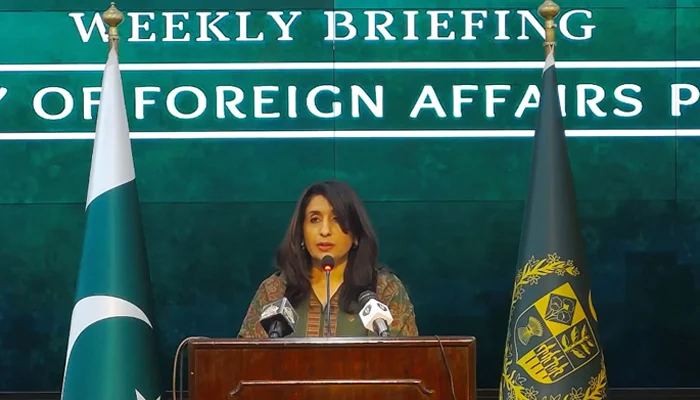ISLAMABAD: The Foreign Office (FO) has criticised the discriminatory and xenophobic comments made by British Home Secretary Suella Braverman regarding Pakistani men, saying they create a misleading picture. Braverman had stated that British-Pakistani men hold cultural values that clash with British values, particularly regarding their views on women.
The FO spokesperson Mumtaz Zahra Baloch rebuked Braverman for branding the criminal behavior of some individuals as a representation of the entire community and failing to acknowledge the contributions made by British Pakistanis to British society.
The FO also expressed deep concern about the alarming rise in violence against Muslims in India during the Hindu festival of Ram Navmi. Communal riots between Hindus and Muslims broke out in several states of India, resulting in injuries and property damage.
The FO spokesperson attributed the rise in Islamophobic and hateful acts against Muslims to the majoritarian Hindutva agenda and anti-Islam and anti-Muslim rhetoric in Indian politics. The FO called on India to take concrete measures to address the issue and protect Muslims’ freedom to practice their faith.
The comments made by British Home Secretary Suella Braverman have sparked controversy and criticism, with many political commentators and children’s charities condemning them as inflammatory and divisive.
Moreover, Braverman’s comments ignore the broader context of child sexual abuse, which is a complex and multifaceted issue that affects all communities, regardless of their ethnic or cultural background. By singling out one particular community, she risks overlooking other factors that contribute to the problem, such as poverty, inequality, and systemic failures in child protection.
Raise in Islamophobia incidents in India
Baloch raised concerns during the briefing about the increasing violence against Muslims in India, particularly during the Hindu festival of Ram Navami. She stated that anti-Muslim violence was reported in at least eight states in India during the festival, with mosques and other Muslim-owned buildings being attacked. She also highlighted the burning down of a seminary in Bihar, which resulted in the loss of around 4,500 books, including the Holy Quran.
Baloch attributed the rise in Islamophobic and hateful acts against Muslims in India to the majoritarian Hindutva agenda and anti-Islam and anti-Muslim rhetoric prevalent in Indian politics. She welcomed the Organisation of Islamic Cooperation’s statement expressing concern about the increasing anti-Muslim incidents in India and urged India to take action against extremists who promote communal violence and hatred against Muslims.
The FO spokesperson also reiterated concerns about the safety and well-being of Kashmiri leaders and human rights defenders who are incarcerated in prisons across Indian Occupied Jammu and Kashmir and India. In conclusion, Baloch called on India to take concrete steps to curb the growing Islamophobia and protect Muslims’ rights to practice their faith without fear of violence or persecution.



